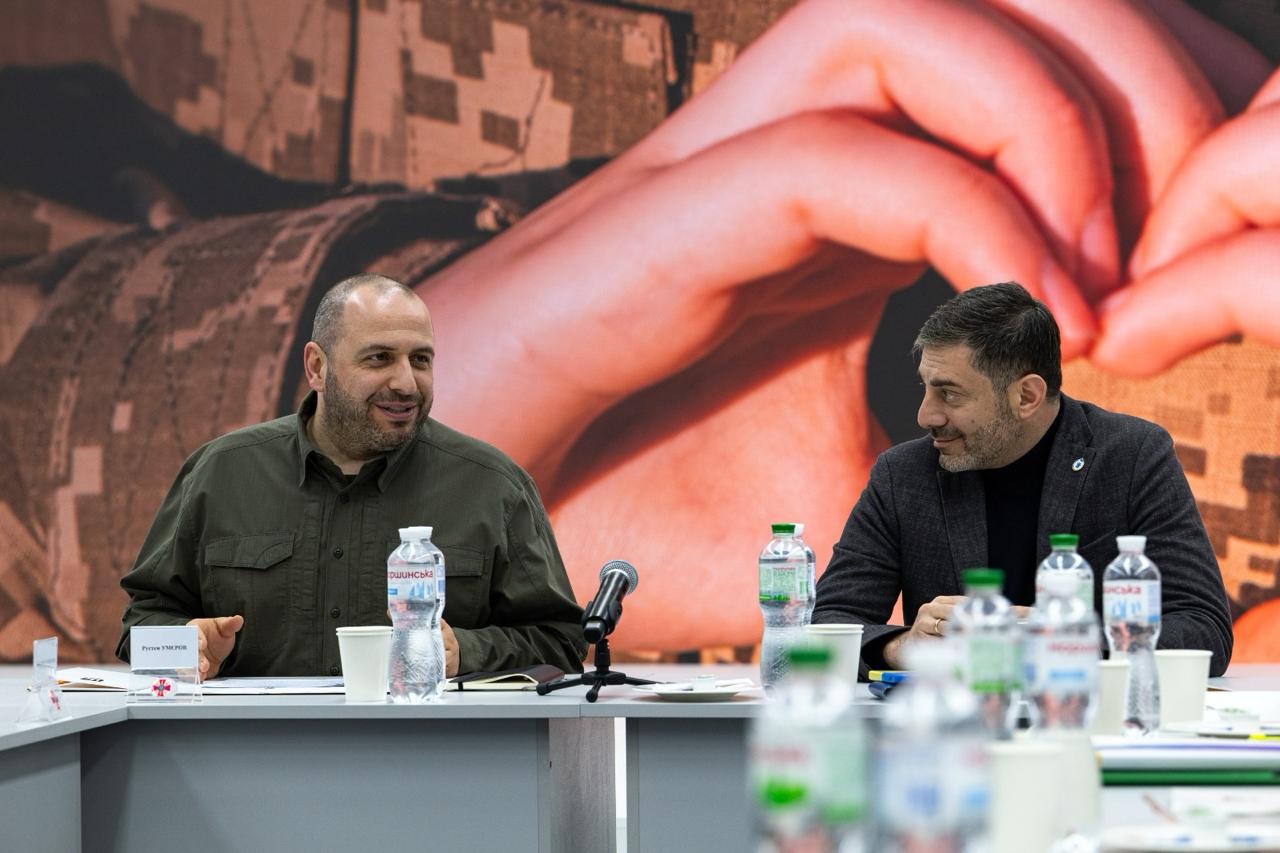A year after Rustem Umerov's appointment as Ukraine's Minister of Defense, which was initially welcomed by civil society organizations, a scathing critique of the ministry's operations has emerged.
The report, published by Ukrainska Pravda on 6 September 2024, and authored by prominent civil society leaders Daria Kaleniuk, Maria Berlinska, and Alyona Getmanchuk, outlines systemic failures in key areas of defense management and paints a picture of a ministry struggling with inefficiency and disorganization.
The authors recall the high hopes that accompanied Umerov's appointment on 6 September 2023. He replaced Oleksii Reznikov, who had been badly affected by two corruption scandals and routinely targeted by a large-scale disinformation campaign.
The report delves into three critical areas where the ministry has fallen short:
- overall management structure
- defense procurement
- international cooperation.
Regarding the ministry's structure, the authors argue that despite Umerov's stated priority of rebuilding the ministry's role in coordinating all defense forces, little progress has been made. They state, "the Ministry of Defense still remains a ministry subordinate to the Armed Forces, and the minister himself does not dare to make decisions that may not be liked by the General Staff."
This lack of clear leadership and coordination is seen as a fundamental flaw in the ministry's operations.
In the realm of defense procurement, the article notes some positive developments, such as the creation of the State Tail Operator (DOT) and the Defense Procurement Agency (AOZ). These agencies have shown promise in reducing corruption and achieving significant savings in defense budgets.
However, the authors point out persistent issues, including overlapping responsibilities and delays in the procurement cycle. They state, "As of August 2024, the list on the basis of which the Defense Procurement Agency has the right to buy weapons and other equipment for the army is formed after consultations with the General Staff by the discredited Department of Military Technical Policy (DVTP)." This department, they note, has been involved in questionable procurement practices in the past and continues to wield significant influence.
International cooperation is described as a "total failure" in the article.
The authors claim that "the delay in establishing international cooperation, namely the elementary absence of a profile deputy for eight months and, accordingly, professional coordination of work on international military assistance, cost [Ukraine] billions of dollars in aid for weapons."
They point out that the ministry lacks basic internal expertise regarding foreign military aid budget programs for Ukraine, contrasting this with Israel's defense ministry, which employs over 100 top specialists to manage US military aid alone.
A critical issue highlighted in the report is the absence of a realistic war plan coordinated with all defense forces and effectively communicated to international partners.
The authors state, "The main problem of the failed international work of the Ministry of Defense is the absence of a realistic war plan formed in coordination with all defense forces and qualitatively communicated with international partners." This lack of strategic planning and communication has reportedly led to unrealistic requests for equipment totaling trillions of dollars, which partners cannot fulfill due to lack of available stock or production capacity.
The report also criticizes the ministry's approach to international relations, particularly its focus on Türkiye at the expense of relations with the United States. The authors note that while the minister has made multiple trips to Ankara, the ministry has failed to effectively engage with US defense procurement programs such as Foreign Military Sales and Foreign Military Finance, which could provide significant benefits to Ukraine.
Despite these criticisms, the authors acknowledge some achievements under Umerov's leadership.
They note significant progress in army digitalization, describing it as a "colossal leap" that puts Ukraine ahead of most NATO armies in this area.
They also commend the initiation of dismantling Soviet-era paper reporting and excessive bureaucracy, and the launch of procurement agencies that have already significantly reduced corruption margins.
However, the authors argue that these successes are insufficient and at risk due to the overall management issues.
They point out that even positive initiatives, such as the effectiveness of the Defense Procurement Agency, are being undermined by the minister's failure to appoint its supervisory board for two months.
The article concludes with a stark warning: "Management chaos always leads to defeat. In the Ministry of Defense of a warring country, this can lead to the defeat of Ukraine."
The authors stress that while they have only covered three key areas in their critique, the management chaos affects nearly all critical areas of the defense ministry's operations.
Related:

